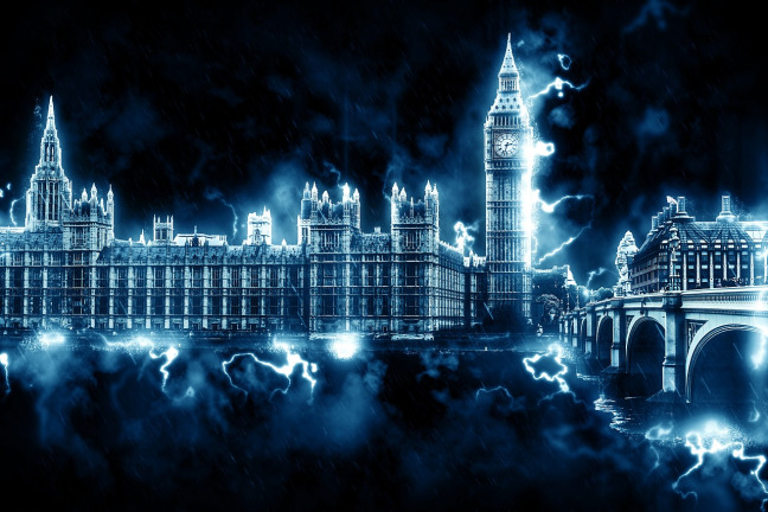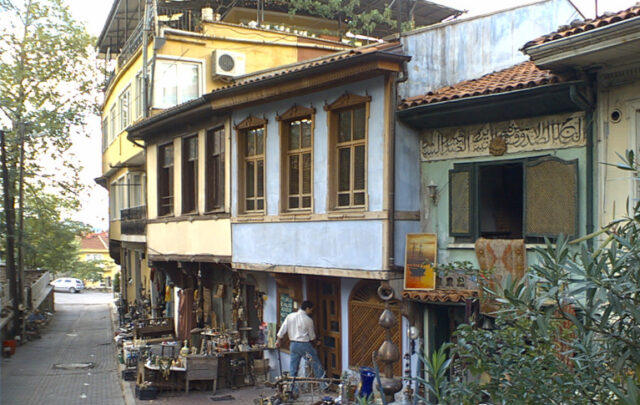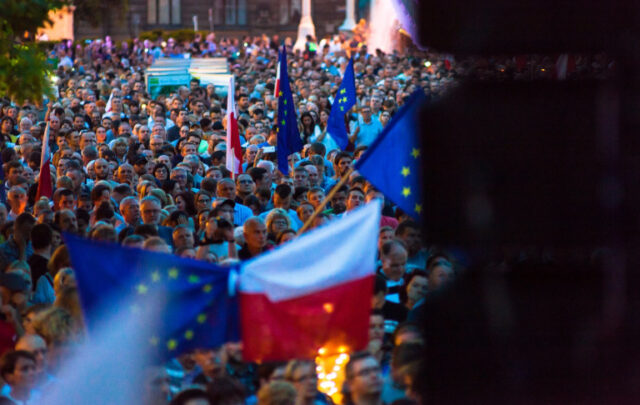A Twitter-esque tale of a country on the edge, a civilisation bumping into the diminishing returns of complexity, and a world reaching the limits to democracy.
A few thoughts on the #JohnsonCoup, the #BrexitMess, and the global #CrisisOfDemocracy, in 24 tweets (THREAD)
1/ The #prorogation (i.e. suspension) of the UK #Parliament by Boris “Over-promoted Rubber Bath Toy” Johnson constitutes, as anyone mildly sane and honest can only reckon, a disgrace and an “affront to democracy”.
2/ During the 2016 referendum campaign, #Brexiteers pretended that #Brexit was about ‘restoring the full sovereignty of Parliament’, which had allegedly been usurped by unelected bureaucrats in Brussels. Now, they’re happy to see their unelected PM suspend this same Parliament.
3/ You don’t & can’t restore Parliament’s sovereignty by suspending it against its will & preventing it from exercising its ‘sovereign’ right & duty to control the executive. This shameful ploy shows, if need be, that #Brexiteers don’t give a damn about Parliament’ sovereignty.
4/ #Brexit, in their minds, was never about restoring British democracy and independence. It was rather about restoring the grip on political power (and on the spoils of power) of a tiny English elite – grip that was being eroded as a result of the UK’s membership of the EU.
5/ The Queen – which some said actually favoured ‘Remain’– could in principle have refused #BoJo‘s request to suspend parliament. Yet it was always unlikely to happen: the British Monarchy is in the hands of this tiny English elite; it cannot and will not stand up to it.
6/ Many now consider that the suspension of Parliament for five weeks either runs against Britain’s constitution or exposes its flaws. That’s not exactly true. Rather, this disgraceful episode exposes the flaws of Britain’s absence of constitution.
7/ Contrarily to what many keep pretending, the UK does NOT have a constitution i.e. a fundamental law establishing the rules of its political organisation. It only has ‘constitutional arrangements’, i.e. a set political arrangements considered as being of constitutional nature.
8/ This absence of formal constitution has served the UK well in the past, enabling its political system to adapt to widely changing circumstances, as the country moved from industrial revolution pioneer to global empire to declining power and then global financial playground.
9/ But the UK’s loosely defined constitutional arrangements are only just that: arrangements. It is the nature of arrangements to be malleable, and it is their fate to be abused and manipulated, one way or another, one day or another. For Britain that day might have arrived.
10/ As the UK enters a period of uncertainty & instability, it’s probably time for the British people, if they want to preserve the foundations of their parliamentary democracy (& the integrity of their Union), to realise that an unwritten constitution is no constitution at all.
11/ To restore trust in the UK’s political system a broad and fundamental refoundation is now needed, and this probably requires finally writing down the rules of the game to ensure that a self-serving elite can no longer use and abuse them in the pursuit of its own interests.
12/ There is no guarantee that this might be possible, by the way – as the ambiguity & vagueness of the UK’s constitutional arrangements have probably been instrumental in keeping this not-so-united kingdom together. One can sometimes only abandon ambiguity at one’s own expense.
14/ Overall, the #BoJoCoup only confirms what was plain to see three years ago: #Brexit is both a consequence and an accelerator of the “crisis of complexity” that is engulfing the West. https://paularbair.wordpress.com/2016/07/05/brexit-the-populist-surge-and-the-crisis-of-complexity/ …
#Brexit, the populist surge and the crisis of complexity
The British vote in favour of an exit from the EU has thrown the UK’s political system into chaos and shocked Europe and the world. The long-term consequences of this vote are still unclear, but so…
paularbair.wordpress.com
15/ The #Brexit vote was in fact a sign among many that investments in socio-technical complexity are now yielding diminishing returns, and that Western societies are increasingly struggling to contain the many forces that are pulling them down towards a lower complexity level.
16/ #Brexit may have been seen as a way of reducing complexity, but turned into a quagmire that itself proved to be too complex to be managed & solved through established political processes. It overwhelmed & clogged them – leading to the implosion of #TheresaMay’s premiership.
18/ The fallout of this #BrexitMess is unpredictable. Nothing will be solved & settled in the short term, regardless of whether Parliament now ousts #BoJo & a general election is called or not. Political disorder will continue & probably deepen for weeks, months, maybe years.
19/ Civil unrest is now a real possibility. More than at any time in living memory, it feels like it wouldn’t take much for the UK to descend into a spiral of political violence. This, actually, is to be expected when a society bumps into the diminishing returns of complexity.
20/ Right now it looks like the UK, which was at the forefront of the rise of industrial civilisation, might well be taking the lead into its demise. The national nervous breakdown over #Brexit – and its inevitably long-lasting consequences – might accelerate the process.
21/ Beyond the state and fate of the UK, the current drama in Westminster is also very symbolic of the historical “moment” we are living through globally, which I have called “the Autumn of Democracy”. https://paularbair.wordpress.com/2016/11/15/trump-and-the-autumn-of-democracy/ …
#Trump and the Autumn of Democracy
The ‘surprise’ election of Donald Trump to succeed Barack Obama in the White House is rocking the foundations of the American political system and of the international order. But the anti-establish…
paularbair.wordpress.com
22/ We are indeed probably experiencing the – still early stages of the – decline and fall of the modern version of democracy, which is getting undermined by the erosion of the very conditions that made its rise, development and expansion possible.
23/ Absent sufficient – and sufficiently broad-based – economic growth, democracy loses its edge over other political regimes in terms of its capacity to peacefully arbitrate & mediate between competing or conflicting interests & values, & thus tends to degenerate & break down.
24/ This is where we are & this is what the #BrexitMess, the #JohnsonCoup & more generally the global #CrisisOfDemocracy tell us. We see leaves falling from the democratic trees, slowly tumbling to the ground. What comes next is likely to be a long & probably chilly winter. /END








